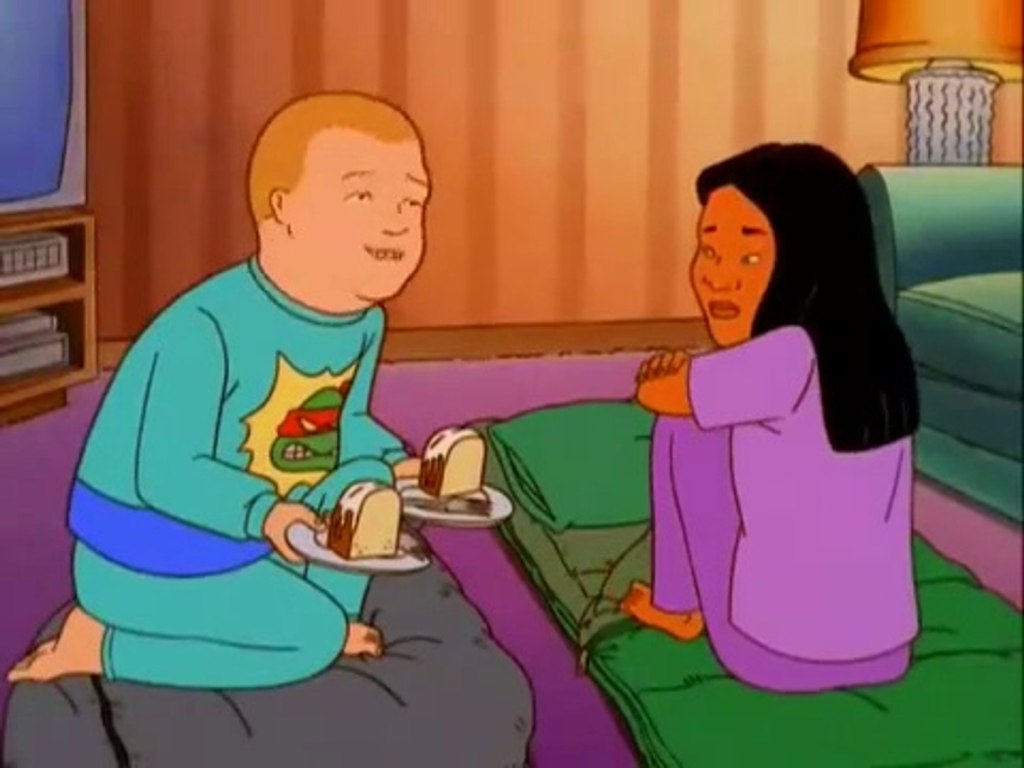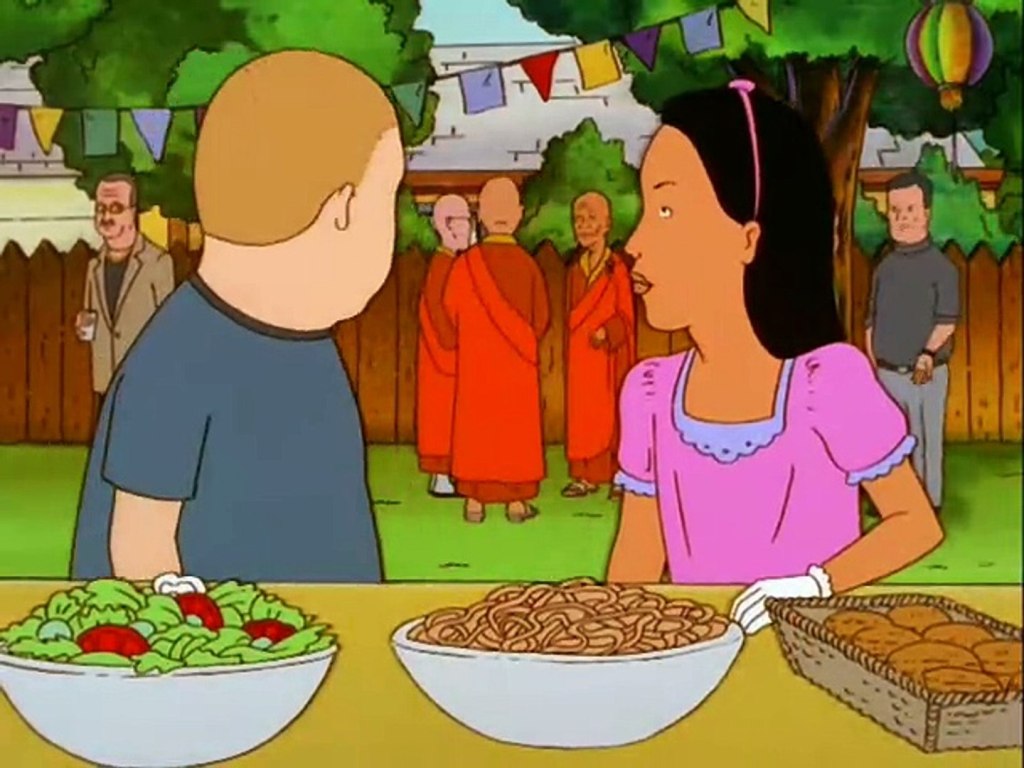Now that King of the Hill is back on our screens with the revival, we’re reuniting the Hill family in modern Arlen and welcoming back fan‑favorite voices like Lauren Tom as Connie and her mom, Minh. With that in mind, we wanted to shine a spotlight on one character who’s grown quietly but powerfully through the original run: Connie Souphanousinphone.
Videos by ComicBook.com
Connie has always been more than the stereotypical “smart neighbor kid.” She’s a brilliant, multi‑dimensional presence whose past arcs now feel richer than ever in light of the revival. So, here are the 10 episodes we think best represent Connie. And ones you should definitely watch alongside diving into the new season.
10) “The Son That Got Away” (Season 2, Episode 8)

This episode highlights Connie’s curiosity, adventurous spirit, and social intelligence, showing how she navigates peer dynamics while maintaining her own sense of responsibility. She joins Bobby and Joseph for a bike ride and the trio ventures into “The Caves” — a teen hangout spot. When they become trapped, Connie’s calm thinking and problem-solving skills help maintain morale. She communicates effectively with Bobby and Joseph, encouraging cooperation and resourcefulness. Connie also subtly manages Bobby’s feelings, sensing his jealousy when he notices her holding hands with Joseph, and redirecting attention to group safety rather than conflict.
By the end of the episode, Connie demonstrates emotional insight, recognizing the nuances of teenage relationships. She navigates the teasing and romantic ambiguity between Bobby and Joseph with tact, showing both empathy and assertiveness.
9) “Bobby Slam” (Season 2, Episode 10)

“Bobby Slam” is one of Connie’s most memorable appearances. Peggy pushes fiercely for her inclusion on the school wrestling team, while the boys’ coach tries to force a no-win clash. But Connie and Bobby outsmart them with a faked match that lets both save face.
This episode is an early example of Connie as a strategic thinker. While the adults remain fixated on outdated ideas of gender and pride, it’s Connie who has the foresight and emotional intelligence to find a solution that works for both her and Bobby. She’s empathetic but assertive; able to navigate a patriarchal system without compromising herself. This balance of empathy and calculation is part of what makes her character arc so rich.
8) “Love Hurts and So Does Art” (Season 3, Episode 18)

In this epsiode, Connie navigates the awkwardness of adolescent social dynamics, including teasing from peers and the pressure of being Bobby’s date. When Bobby gets gout from eating chicken liver at a deli he tries to use this to get out of taking Connie to the dance. When she discovers him sneaking more liver from the deli, Connie expresses frustration and disappointment, articulating clearly how his poor decisions affect others. Yet, she still cares enough to confront him directly rather than complain to adults.
The contrast between Connie’s responsibility and Bobby’s panic over their relationship becomes central to the episode. Connie demonstrates patience, assertiveness, and empathy, ultimately guiding Bobby to recognize what truly matters. Her emotional intelligence helps Bobby prioritize their relationship over his obsession with indulgent foods and minor health crises. Connie emerges as intelligent, responsible, and kind, while Bobby learns to value her example and prioritize the relationship. Her role highlights how emotional maturity and clear communication can resolve conflict and guide others toward better choices.
7) “Aisle 8A” (Season 4, Episode 5)

Connie’s as poised and precise as ever in this episode, and this time she’s traversing social settings that are at odds with her awkward teenager phase. Whether she’s helping Peggy or just offering a thoughtful perspective, this showcases her as an easy bridge between worlds: between youth and adulthood, tradition and aspiration.
What elevates this episode is Connie’s confident navigation of puberty, that notoriously awkward milestone in any young girl’s life. Her matter-of-fact approach reveals a level-headedness that makes her seem more grown-up than the adults. It’s also a quiet episode in terms of structure, but one that contributes significantly to the foundation of her revival-era maturity.
6) “Naked Ambition” (Season 4, Episode 15)

After Bobby accidentally sees Luanne naked, Connie becomes concerned her friend is a big ol’ pervert. But when Bobby sneaks into her room to confess the incident, Connie listens with empathy, helping him understand the importance of accountability and personal respect. Her relationship with Bobby also deepens here, as they share a moment of trust and honesty, which culminates in a kiss.
Throughout, Connie consistently exhibits thoughtfulness, balancing adolescent curiosity with a grounded sense of ethics. Even amid chaos involving Kahn, Luanne, and neighborhood antics, Connie remains self-possessed, reinforcing her role as a mature, emotionally intelligent presence in Arlen.
This episode underscores Connie’s ability to navigate tricky social situations with wisdom, empathy, and quiet strength, solidifying her growth from a precocious neighbor kid into a nuanced, self-assured teenager.
5) “Won’t You Pimai Neighbor?” (Season 4, Episode 18)

This episode places Connie at the heart of a cultural and spiritual crossroads, showcasing her maturity and nuanced understanding of identity. During the neighborhood Pimai celebration, a group of Buddhist monks searches for the reincarnated Lama Sanglug, and Connie is identified as one of the potential candidates.
Connie’s reactions throughout the episode reveal the subtle pressures faced by many first-generation American teens. She feels a deep connection to her Laotian heritage while simultaneously asserting her own independence. She does not rebel loudly against her parents or the cultural ritual, but her body language, expressions, and careful participation convey that she is thoughtfully assessing her role in these traditions.
Even amid the chaos of the monks’ tests, Bobby’s antics, and Kahn’s overzealous involvement, Connie maintains her composure. She becomes the emotional anchor in the episode, and her ability to balance respect for tradition with her own sense of self highlights the quiet strength that has defined her character from early seasons. This is one of the rare episodes where King of the Hill allows its Laotian-American characters space to shine in the cultural spotlight. Her grace in navigating that space makes this episode one of the best cultural showcases of the entire series.
4) “Kidney Boy and Hamster Girl: A Love Story” (Season 5, Episode 20)

Bobby fakes a kidney disease to gain popularity. Such an obvious thing to conjure up in a teenager’s mind! But as he experiences popularity, he forgets his friends, which we see through Connie’s genuine concern and eventual disappointment in Bobby’s dishonesty.
She stands fast too; holding Bobby accountable in a way that feels like a truly mature moment.
Connie isn’t just a foil for Bobby here—she’s a moral compass, and one of the only characters thinking clearly. As such, this episode underlines just how foundational she is to the emotional integrity of the show. Connie’s smart enough to see through Bobby’s idiocy and genuine enough to feel the entangled confusion that comes with it.
3) “Father of the Bribe” (Season 6, Episode 6)

This episode highlights Connie’s shrewd business and emotional intelligence, showing how she can navigate both teenage romance and the manipulations of adults.
When Kahn Souphanousinphone tries to bribe Bobby Hill to break up with her, Connie immediately grasps the absurdity of the situation. Rather than reacting with anger or confusion, she colludes with Bobby to turn the scheme to their advantage by pretending to break up in order to collect the money.
Connie convincingly acts distressed, even manipulating the perceptions of adults around her, including a concerned schoolteacher who suspects she may be depressed or suicidal. Through this, Connie reveals her skill at reading social cues and understanding how people will respond to her behavior. The constant interference of her parents and Hank creates additional pressure, but Connie handles it with composure. While the adults’ repeated double dates become increasingly tiresome, Connie’s pragmatism and awareness allow her to maintain her agency in the situation.
2) “The Bluegrass is Always Greener” (Season 6, Episode 9)

Music, culture, and identity collide in an episode that allows Connie’s creative side to shine through. Although she identifies more with the classical side of music, we get to see her step into a very different genre. Her affinity for bluegrass (much to her parents’ initial discomfort) shows how she’s her own person.
This story gives Connie space to push against expectations without having to rebel in loud or clichéd ways. Instead of storming out or rejecting her heritage, she simply discovers a new love for bluegrass music and follows it. What makes this plot so enjoyable is how it portrays the journey of a teenage sense of identity in a very authentic way. She’s becoming independent from her parents; she doesn’t abandon her classical training, but she doesn’t let it box her in either. Through this, Connie represents the best of tradition and modernity intertwined.
It’s also worth noting that King of the Hill doesn’t mock bluegrass here; it treats the genre with respect, just as it does with Connie’s decision to explore it. She performs with skill and passion, and her success serves as a quiet validation of her individuality. It’s the kind of character moment that can easily set the stage for a grown-up Connie who is confident, self-directed, and still following her heart, even when it takes her to unexpected places.
1) “The Redneck on Rainey Street” (Season 8, Episode 21)

“The Redneck on Rainey Street” showcases Connie’s perseverance, intelligence, and maturity, especially when handling challenges caused by her parents’ impulsive behavior.
Connie applies to the Rice University summer program, impressing the admissions officer, Ruth Brown, with her excellent grades. But when she is initially rejected, she faces the frustrating reality of discrimination, highlighting her ability to navigate setbacks calmly, even as her father reacts in dramatic fashion.
While Kahn embraces his newfound redneck identity by buying an El Camino, dressing sloppily, engaging in street racing, and eventually participating in underground “stickin’” fights, Connie remains grounded. She adapts to her parents’ erratic lifestyle by temporarily staying with Hank and Peggy Hill, demonstrating her resourcefulness and emotional resilience. Even amid chaos, Connie continues to focus on her academic ambitions, and being a model of responsibility and persistence in contrast to her parents’ impulsiveness.
Through the episode, Connie serves as a stabilizing force. She’s a reminder of responsibility and hard work, flipping the script on her parents whose immature antics spiral out of control. By the end, her dedication is rewarded, reinforcing her role as a character who balances intellect, determination, and emotional resilience. Her triumph also inspires Kahn to regain his senses, showing the influence of Connie’s example on her parents’ eventual return to reason.








